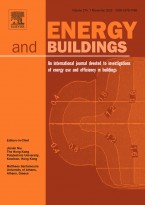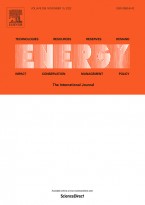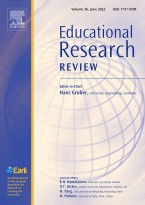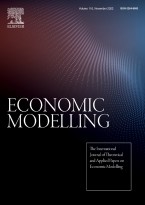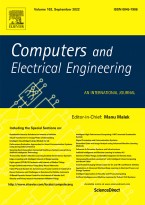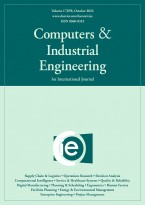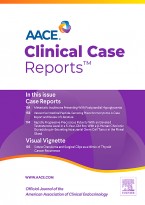
چکیده فارسی
ایجاد عوارض دستگاه گوارش فوقانی در بیماران مبتلا به مرحله چهارم سرطان تیروئید دریافت کننده مهارکننده های تیروزین کیناز
چکیده هدف مهارکننده های تیروزین کیناز (TKIs) یک کلاس از شیمی درمانی سیستمیک هستند که در بیماران مبتلا به سرطان متاستاتیک تیروئید مقاوم به ید رادیواکتیو استفاده می شود. TKIs با اختلال در بهبود زخم مرتبط است، اما ارتباط آنها با عوارض دستگاه گوارش فوقانی به خوبی تعریف نشده است. هدف از این سری موارد نشان دادن این بود که عوارض دستگاه گوارش فوقانی در بیماران مبتلا به سرطان تیروئید دریافت کننده TKI می تواند رخ دهد. روشها مروری گذشتهنگر بر روی 3 مورد شامل بیماران مبتلا به سرطان تیروئید تمایز یافته یا مدولاری مرحله IV انجام شد که بین سالهای 2000 تا 2015 تحت درمان قرار گرفتند. عوارض دستگاه در طول دوره بالینی خود. ResultsPatient 1 TKIs برای متاستازهای ریوی مقاوم به ید رادیواکتیو دریافت کرد و 1 سال پس از شروع شیمی درمانی فیستول نای مری ایجاد کرد. بیمار 2 برای متاستازهای ریوی TKI دریافت کرد و چند ماه پس از شروع شیمی درمانی فیستول نای مری ایجاد کرد. بیمار 3 برای بیماری متاستاتیک پیشرونده 9 سال پس از مداخله اولیه روی TKI قرار گرفت و بعداً دچار نکروز حنجره شد. نتیجهگیری TKIs سیستمیک میتواند یک مزیت بالینی در بیماران مبتلا به سرطان تیروئید متاستاتیک ارائه دهد. با این حال، پزشکان باید بیماران را از نظر تشکیل فیستول دستگاه گوارش فوقانی و نکروز بافت در طول و بعد از درمان TKI نظارت کنند. اگرچه سابقه پرتودرمانی خارجی ممکن است بیماران را در معرض افزایش خطر ایجاد فیستول قرار دهد، تحقیقات بیشتری برای تعیین خطر نسبی مرتبط با قرار گرفتن در معرض TKI بعدی در این بیماران مورد نیاز است.
چکیده انگلیسی
Development of Upper Aerodigestive Tract Complications in Patients with Stage IV Thyroid Cancer Receiving Tyrosine Kinase Inhibitors
ABSTRACT Objective Tyrosine kinase inhibitors (TKIs) are a class of systemic chemotherapy used in patients with radioactive iodine-refractory metastatic thyroid cancer. TKIs have been linked with impaired wound healing, but their association with upper aerodigestive tract complications is not well defined. The objective of this case series was to demonstrate that upper aerodigestive tract complications can occur in thyroid cancer patients receiving TKIs. Methods A retrospective chart review was conducted on 3 cases involving patients with stage IV differentiated or medullary thyroid cancer treated between the years from 2000 to 2015. Each patient received surgical management, external beam radiation therapy, and subsequent TKI therapy and they also developed upper aerodigestive tract complications during their clinical course. Results Patient 1 received TKIs for radioactive iodine-refractory pulmonary metastases and developed a tracheoesophageal fistula 1 year after initiation of chemotherapy. Patient 2 received TKIs for pulmonary metastases and developed a tracheoesophageal fistula several months after initiation of chemotherapy. Patient 3 was placed on TKIs for progressive metastatic disease 9 years after initial intervention and later developed laryngeal necrosis. Conclusion Systemic TKIs can offer a clinical benefit in patients with metastatic thyroid cancer. However, clinicians should monitor patients for upper aerodigestive tract fistula formation and tissue necrosis during and after TKI therapy. Although a history of external beam radiation therapy may place patients at increased risk for fistula development, further investigation is needed to determine the relative risk associated with subsequent TKI exposure in these patients.
